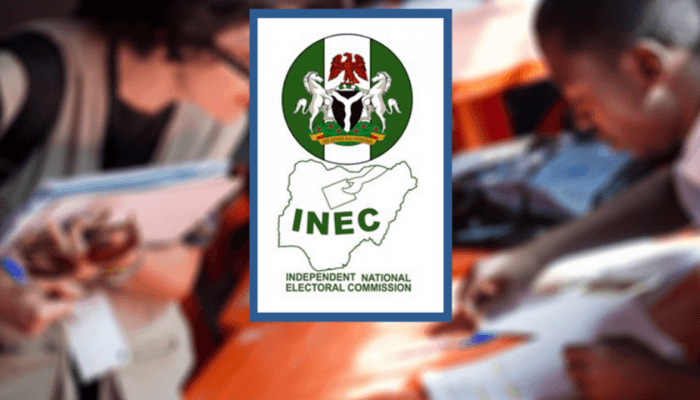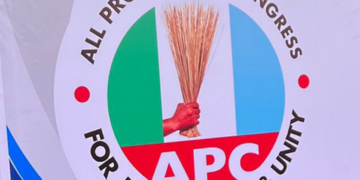Some civil society organisations (CSOs) and experts in the electoral process have said the country does not need more political parties to add to the registered 19, but quality and virile ones that would deepen democracy.
They spoke against the backdrop of the 110 associations’ application to the Independent National Electoral Commission (INEC) for registration as political parties.
INEC had on Wednesday disclosed that it received letters of intent from 110 associations to be registered as political parties. These include All Democratic Alliance (ADA), Advanced Democratic Alliance (ADA), Absolute Congress (ABC), Key Freedom Party (KFP), All Grassroots Party (AGP), Congress Action Party (CAP), United Social Democratic Party (USDP), National Action Congress Party (NACP), Great Alliance Party (GAP), New Nigerian Congress (NNC), United Peoples Victory Party (UPVP) and Allied Conservative Congress (ACC).
Others are Peoples Freedom Party (PFP), All Nigerians’ Party (ANP), Abundant Social Party (ASP), Citizens Party of Nigeria (CPN), National Freedom Party (NFP), Patriots Party (PP), Movement of the People (MDP), Peoples National Congress (PNC), African Union Congress (AUC), Alliance of Patriot(AOP), Socialist Equality Party (SEP), About Nigeria Party (ABNP) African Reformation Party (ARP) and Accelerated African Development Association (AADA).
Reacting to this development, a lecturer in the Department of Political Science, Bingham University, Karu, Michael John Agbo told LEADERSHIP Sunday that the country does not need new political parties to add to the number in existence as that will not change anything in the electoral system.
Agbo said what is needed at the moment is the amendment of the Electoral Act to reflect the new reality of the electoral system and called for stricter guidelines that would limit how groups and associations apply to be registered as political parties.
“Coming up with fresh 110 applications is ridiculous to say the least, and this is because, we do not have a stricter guideline for registering and deregistering of political parties.
“We do not need new political parties to add to the numbers we already have, as that will not change anything in our electoral system. What we need is the amendment of our Electoral Act to reflect the new reality of our electoral system.
“These realities are; strengthening the electronic voting system to include real time transmission of results during election and stricter guidelines that will limit how we apply to register political parties.
“For instance, if a political party did not produce any elected person from their platform, it should be immediately deregistered. This would clean up the list and prevent attention seeking individuals from attempting to register new ones.
“A clear guideline on the issue of defection and losing of seat to prevent the situation that happened in Rivers State from happening again as well as de-politicisation of our judiciary so that we can witness sound judgement from there,” he noted.
On his part, the executive director, CREAP Africa Initiative, Sylvanus Udoenoh said while it is within the democratic rights of the associations to apply for the registration, what Nigeria needs is not necessarily more parties — but better parties, with ideologies and reformative agenda.
He observed that some of those associations are aggrieved and frustrated members of some of the frontline political parties who were not being carried along.
Udoenoh urged INEC to prioritise quality over quantity and for political actors to channel energies toward transformative action rather than symbolic registration.
He said the surge in political party applications, as recently disclosed by INEC of over 110 associations submitting applications for registration is a significant political development that demands thoughtful national reflection.
“You see, multi-party democracy is a hallmark of freedom and political expression (of the values we deeply uphold at CREAP Africa Initiative). As an organisation, we are concerned about the practical, governance, and electoral implications of this surge. Nigeria currently faces immense challenges – from deepening inequality, environmental degradation, weak democratic institutions, and growing disillusionment among citizens, especially the youth.
“We believe that what Nigeria needs is not necessarily more parties — but better parties, with ideologies and reformative agenda. The proliferation of political associations without distinct ideologies, clear grassroots structures, or reform-driven agendas risks further fragmenting the political landscape, confusing the electorate, and weakening democratic consolidation,” Udoenoh said.
He therefore advocated strong internal democracy within existing parties where interests and ideas could be aggregated.
“We need strong political parties that aggregates interests, provide alternatives and ensure effective checks on our politics and governance space.
I see that some of those associations are aggrieved and frustrated members of some of the frontline political parties who were not being carried along,” he stated.
Udoenoh also called for the promotion of inclusion, transparency and accountability in party operations, adding that political parties should enthrone core democratic principles in their administrations to engender effective leadership.
He also suggested that there should be a reform of the party registration process to ensure only associations with credible platforms, national spread, and policy relevance are approved.
“Some of the associations approaching for registration are either regional-based, lacking the very spread to engage a multi-ethnic, multi-region, multi-religious country like Nigeria.
“Political associations should focus on elevating political education to empower citizens to make informed electoral choices based on ideology and performance, not noise and populism.
“Nigeria’s democratic future lies not in the multiplication of party names but in the mobilisation of principled and visionary leadership across platforms. If Nigeria must make progress, the way forward is to commit to democratic governance, civic engagement, and a politically conscious citizenry capable of holding leaders accountable, regardless of their party labels, acronyms and slogans,” Udoenoh added.
Also , Dr Christian Okeke, a political science lecturer at the Nnamdi Azikiwe University, Awka said what Nigeria needs at this time and ahead of the 2027 general elections is not to further atomise the party system.
According to him, such a large number of parties would only create confusion such as the case previously and not rescue the country and point it to its desired destination of greatness.
“That number is too much to be added to what we have already, even though application by the various organizations for registration as political parties is within the ambit of constitutional provision.
“The problem in the polity is not because there is something fundamental and irredeemably wrong with the existing parties.
“The political elite who do not want to subsume personal interest within the larger party and national interests are the problem.
“Egoism, parochialism, lack of internal democracy, ethnicity, betrayal and such factors ate deep into the fabrics of the existing parties and have destroyed most of them.
“That is also the reason why there is no viable opposition party in the country as the parties which should have played that critical role are all conflict-infested.
“When you go through the names or list of the aspiring political party, I am sure that you will begin to ask what some of the names and proponents want to actually achieve.
“It is clear, anyway, that some simply want to get the registration and use the respective parties to negotiate financial settlement in 2027, having sensed there would be unprecedented monetisation of the political process at that time.
“If President Tinubu would contest in 2027, there is likely going to be some desperation as the ruling party and himself as candidate will likely choose to explore all constitutional and financial options to retain power. Apart from that, some disenchanted politicians who might lose out in the political calculations would look for alternative platforms and will be willing to offer huge sums to grab platforms.
“These are what some of those pushing for party registration appear to have taken into account of and positioning for.
“Those in this category know that it is not about the love of the country.
However, let INEC do whatever they wish to do with them within the ambit of the constitution.
The appeal is for those pushing for more parties to love the country and prioritise saving her soul for the sake of the living and the posterity. Let them make that sacrifice,” Okeke added.
However, a former national chairman of Inter-Party Advisory Council (IPAC), Peter Ameh, said the applications were healthy for democracy as they would open more room for inclusivity.
Speaking on the AIT programme, Kakaaki, which was monitored by our correspondent, he said, “The beauty of it is that it is about inclusivity; it’s about creating a level playing field for those who want to participate in the process.
“Sometimes when you block the process from being too open, you create more problems because people have to have a way to ventilate their opinions and have platforms to be able to communicate effectively with Nigerians. Some platforms might not give you the opportunity.
“…So for associations seeking to register as political parties, I don’t think anything is wrong with it. I like the word you use, interest. Whose interest? Because that seems to be the controversy there. It is the interest of the people… and when a political party is registered, it no longer belongs to an individual; it becomes a public institution. It belongs to those who register, who subscribe to be members of those political parties.”











